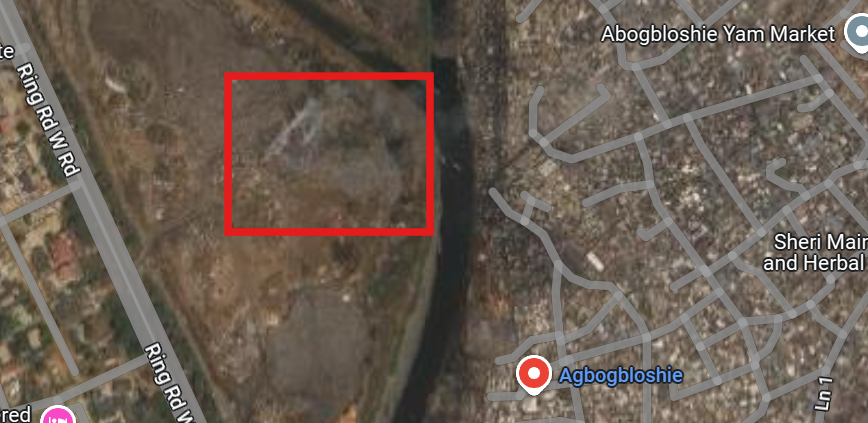The Burning of Waste: A Growing Environmental and Public Health Crisis in Africa.

The burning of waste has become a significant environmental and public health concern. Open waste fires, whether deliberate or accidental, release harmful pollutants that contaminate the air, water, and soil. These fires contribute to climate change by emitting greenhouse gases and worsening pollution levels, leading to long-term environmental damage. Additionally, exposure to toxic smoke from burning waste poses serious health risks, including respiratory diseases, skin conditions, and even life-threatening illnesses like cancer. If left unaddressed, waste burning will continue to endanger both human lives and the environment. Urgent efforts are needed to promote sustainable waste disposal practices and mitigate the dangers associated with open waste fires.
The Scope of the Problem
Waste management is a global challenge that continues to escalate. According to a World Bank report, solid waste generation has increased significantly and is projected to reach 2.2 billion tons per year by 2025. Some of the key causes of this problem include the intentional and unintentional burning of various waste materials, such as plastics, food waste, and general garbage. Additionally, inadequate waste management infrastructure, space constraints, and weak enforcement of regulations contribute to the issue.
Furthermore, Western countries have exacerbated the problem by using Africa as a dumping ground for electronic waste (e-waste). A report by NPR journalist Jonathan Lambert highlights how e-waste from the United States is shipped to Ghana, often disguised as usable products or discarded in the ocean before washing up on African shores. In his article, How America’s E-Waste Ends Up in Ghana’s Toxic Dumps, Lambert explains how imported e-waste is often burned to extract valuable metals like gold, releasing harmful toxins into the air and soil. The failure of institutions and governments to regulate this practice remains a perplexing issue, and local authorities must take a stand to prevent Ghana from becoming a global waste dumping ground.
The Local Impact in Ghana
In Ghana, urban areas face significant waste management challenges due to space constraints and poor regulatory enforcement. Many households resort to improper waste disposal methods, including open burning, because metropolitan authorities fail to provide adequate waste collection services. Areas like Dome, Agbogbloshie, and Dansoman have become hotspots for waste fires, where residents are subjected to daily exposure to toxic smoke and pollution.

Unfortunately, many Ghanaians overlook the severe health risks associated with waste burning. Smoke from these fires can cause headaches, eye irritation, and long-term respiratory illnesses. According to the World Health Organization (WHO), exposure to waste fire smoke is responsible for an estimated 339,000 premature deaths annually due to increased risks of hypertension, asthma, respiratory infections, and cardiac arrest. The high cost of treating illnesses like asthma makes the situation even more challenging for the average Ghanaian.
The Role of Local Governments
Local governments play a crucial role in addressing waste management issues and reducing the harmful effects of waste burning. While some initiatives have been introduced, enforcement remains a significant challenge. Metropolitan and municipal authorities need to take the following steps to mitigate the crisis:
- Strengthen Waste Collection Services: Investing in reliable waste collection systems and pickup points to prevent illegal dumping and burning.
- Develop Waste Recycling Programs: Establish community-based recycling initiatives to promote sustainable waste disposal.
- Enforce Land Use and Zoning Laws: Ensuring proper planning of residential and industrial areas to prevent uncontrolled waste accumulation.
- Increase Public Awareness Campaigns: Educate citizens on the dangers of waste burning and encourage proper disposal methods.
- Hold Polluters Accountable: Implementing strict penalties for businesses and individuals who illegally dump or burn waste.
By taking decisive action, local governments can play a pivotal role in reducing the environmental and health risks associated with waste fires.
Environmental Consequences
Waste fires have far-reaching environmental consequences. The pollution of air, soil, and water caused by these fires leads to significant ecosystem degradation. Burning waste releases toxic gases and chemicals, including particulate matter (PM), nitrogen oxides, carbon monoxide, volatile organic compounds (VOCs), and polycyclic aromatic hydrocarbons (PAHs). These pollutants pose serious health risks, particularly to vulnerable populations such as the elderly, pregnant women, and children.
Moreover, waste fires increase the risk of uncontrolled wildfires, further endangering communities and market centers. A notable example is the recent fire outbreak at the Adum Market in Kumasi, where waste fires contributed to extensive property damage. Additionally, waste burning accelerates climate change by releasing greenhouse gases, making Ghana more susceptible to global warming and extreme weather conditions.
Economic Implications
Beyond health and environmental concerns, waste burning has significant economic repercussions. The cost of treating diseases related to waste smoke exposure places a financial burden on individuals and the healthcare system. Additionally, waste fires lead to the destruction of property and infrastructure, resulting in substantial economic losses. Businesses involved in waste collection, sorting, recycling, and energy recovery are also adversely affected by unregulated waste-burning practices.
The Path Forward: Sustainable Waste Management
Addressing the issue of waste burning requires a multi-faceted approach that involves individuals, communities, and government agencies. The most effective solution is implementing proper waste management systems, including:
- Waste Separation: Categorizing waste into organic and non-organic materials for appropriate disposal.
- Recycling and Composting: Encouraging recycling initiatives and composting organic waste to reduce landfill use.
- Regulatory Enforcement: Strengthening policies and ensuring compliance with waste disposal regulations.
- Public Education: Raising awareness about the dangers of waste burning and promoting environmentally friendly disposal methods.
- Investment in Waste Management Infrastructure: Establishing modern waste treatment and recycling facilities to handle waste effectively.
The Ghanaian government has already introduced various initiatives to combat waste burning, such as the development of waste management policies and the establishment of waste processing facilities. However, more action is needed to ensure these measures are effectively implemented.
Waste burning is a critical environmental and public health issue that demands immediate attention. The associated health risks, including respiratory diseases and cancer, are severe, while the environmental impact, such as air and water pollution, is long-lasting. To combat this crisis, individuals, communities, and governments must work together to promote sustainable waste disposal practices and enforce strict regulations against waste burning.
By adopting responsible waste management strategies, we can reduce the risks of waste fires, protect public health, and preserve our environment for future generations. The time to act is now—let’s work together to create a cleaner, healthier, and more sustainable Ghana. Add your comment below.
The Equatorial Gulf is an independent news brand dedicated to delivering insightful news, commentary, and analysis across the continent and beyond. We serve a global community of free thinkers who value our trusted voice and commitment to driving positive change. Our mission is to inform, inspire, and catalyze meaningful progress for the benefit of humanity.
Comments ()